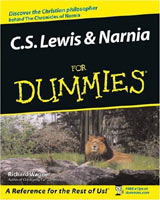"So now we know. Women’s IQ is, on average, five points less than men’s. That is the conclusion of two researchers’ summaries of 57 academic studies on gender and intelligence in the British Journal of Psychology in November. . .
"All you need to know for pop psychology purposes is that Professor Richard Lynn and Dr Paul Irwing have found that there are three men to each woman with an IQ of more than 130 and 5.5 men for each woman with an IQ above 145. Oh, and the difference between the sexes really opens up only after the age of 14. . .
"As it happens, Lynn has not only established that men tend to be brighter than women, he has also controversially discovered that Europeans have a higher IQ than the peoples of sub-Saharan Africa. And — lest you were working up a liberal ecstasy of embarrassment about it — he also found that the oriental peoples of east Asia have higher average intelligence by five IQ points than Europeans. So there.
"Faced with scholarship of this nature, I tend to take refuge in G K Chesterton’s brilliant little novel,
The Napoleon of Notting Hill, in which a deposed president of Nicaragua argues about the merits of civilisation with an advocate of the same, an English civil servant called Barker. The former president sternly inquires of Barker whether he knows the best way to lasso a wild horse. To which the civil servant replies with dignity that he never catches wild horses and suggests that he sets very little store by such barbarian dexterity.
"Precisely, says the Nicaraguan. 'If the bedouin Arab does not know how to read, some English missionary or schoolmaster must be sent to teach him to read, but nobody ever says, ‘This schoolmaster does not know how to ride on a camel; let us pay a bedouin to teach him’.'
"The point is rather simple. It’s that it is easy to establish standards of worth by which people are found wanting without actually asking whether we are measuring the most important attribute for the business of existence. And when we set up IQ tests as the standard by which women are found inferior to men, we may indeed question whether a high IQ is all it’s cracked up to be."
Link.
